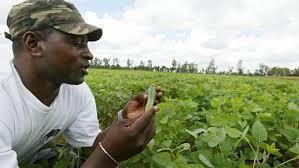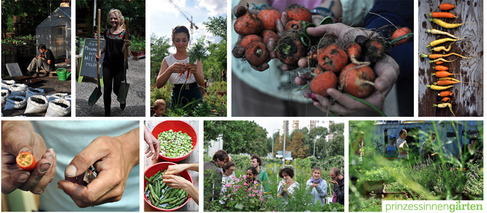OUR VISION
Dreaming Our Vision
People say I'm a dreamer. I know I'm not the only one. It serves me well to be optimistic no matter what the circumstances, but I am also a realist. Now more than ever I believe the realists, dreamers & change agents who own Sevananda should be the ones to create a shared vision for her, and this common point of unity can be the starting point
from which we can build together, equally sharing in the work.
I am solution-oriented, highly creative, and ready to be of service to assist Sevananda in reconnecting with the values, ideas, & principles she was founded on. I believe that happens through restoring lost relationships, strengthening existing relationships, and establishing new ones. It's known in the co-op industry as Linkage or engagement. Communication, trust, & building can't begin until we engage with each other. Emails and signs are not enough.
People say I'm a dreamer. I know I'm not the only one. It serves me well to be optimistic no matter what the circumstances, but I am also a realist. Now more than ever I believe the realists, dreamers & change agents who own Sevananda should be the ones to create a shared vision for her, and this common point of unity can be the starting point
from which we can build together, equally sharing in the work.
I am solution-oriented, highly creative, and ready to be of service to assist Sevananda in reconnecting with the values, ideas, & principles she was founded on. I believe that happens through restoring lost relationships, strengthening existing relationships, and establishing new ones. It's known in the co-op industry as Linkage or engagement. Communication, trust, & building can't begin until we engage with each other. Emails and signs are not enough.
We Are Two Entities in One.
My Story
Showcase your skills
Strong Operation
Strong Co-op
They are two distinct things with different needs. We can determine how to strengthen each through owner engagement, GM relationship, and staff input.
A deep spiritual awakening and healing journey brought me to Sevananda. After exploring my emotional, mental, and spiritual potential, I wanted to focus on my physical potential. Sevananda was the place that represented nutrition and food safety for me and that was where I would start.
Despite our recent challenges, brief online surveys say, this is still how many people view us. We also have an opportunity to wow our new customers and demonstrate our unique differences, attention to customer service, and that we are leader in food safety education.
Relationship building, listening, supporting, navigating from point A to B, empowering others, seeing what needs improvement and creating a plan to do that! Releasing of what no longer serves, building on what works!


A strong co-op starts with strong servant leadership and strong owner engagement. Each owner is unique and joins for a variety of reasons. The co-op is best served when they connect with each type of owner, find out what they want, and create a way for then to contribute to the co-op. That's what I believe owners want. It's really all they ask in response to what we have said this entity represents. Creating a shared vision and plan together is one sustainable way for us to grow and move forward together in strength.
If we create the plan together, it is less likely we will destroy it.
I believe if we do Linkage right, everything else works. Why?
-Owners feel like we are living up to the co-op principle #2 Democratic Member Control
-Owners feel like the are a part of the co-op
-The Board/Owner relationship begins to build a foundation on which to build trust and respect.
-The relationship becomes a living, breathing, example of collaboration and the cooperative spirit.
The general types are as follows:
-Customer: Largest number
-Owners
-Social
-Working Owners
-Active - Smallest number, most vocal
Some owners are ALL of these, so fit in one or two categories.
Which one, or two are you?
If we create the plan together, it is less likely we will destroy it.
I believe if we do Linkage right, everything else works. Why?
-Owners feel like we are living up to the co-op principle #2 Democratic Member Control
-Owners feel like the are a part of the co-op
-The Board/Owner relationship begins to build a foundation on which to build trust and respect.
-The relationship becomes a living, breathing, example of collaboration and the cooperative spirit.
The general types are as follows:
-Customer: Largest number
-Owners
-Social
-Working Owners
-Active - Smallest number, most vocal
Some owners are ALL of these, so fit in one or two categories.
Which one, or two are you?
Co-op Principles are paramount. I think its important that we ALL understand them and define how we will apply them everyday.
1. Voluntary and Open Membership Cooperatives are voluntary organizations, open to all people able to use its services and willing to accept the responsibilities of membership, without gender, social, racial, political or religious discrimination.
2. Democratic Member Control Cooperatives are democratic organizations controlled by their members—those who buy the goods or use the services of the cooperative—who actively participate in setting policies and making decisions.
3. Members' Economic Participation Members contribute equally to, and democratically control, the capital of the cooperative. This benefits members in proportion to the business they conduct with the cooperative rather than on the capital invested.
4. Autonomy and Independence Cooperatives are autonomous, self-help organizations controlled by their members. If the co-op enters into agreements with other organizations or raises capital from external sources, it is done so based on terms that ensure democratic control by the members and maintains the cooperative’s autonomy.
5. Education, Training and Information Cooperatives provide education and training for members, elected representatives, managers and employees so they can contribute effectively to the development of their cooperative. Members also inform the general public about the nature and benefits of cooperatives.
6. Cooperation among Cooperatives Cooperatives serve their members most effectively and strengthen the cooperative movement by working together through local, national, regional and international structures.
7. Concern for Community While focusing on member needs, cooperatives work for the sustainable development of communities through policies and programs accepted by the members.
1. Voluntary and Open Membership Cooperatives are voluntary organizations, open to all people able to use its services and willing to accept the responsibilities of membership, without gender, social, racial, political or religious discrimination.
2. Democratic Member Control Cooperatives are democratic organizations controlled by their members—those who buy the goods or use the services of the cooperative—who actively participate in setting policies and making decisions.
3. Members' Economic Participation Members contribute equally to, and democratically control, the capital of the cooperative. This benefits members in proportion to the business they conduct with the cooperative rather than on the capital invested.
4. Autonomy and Independence Cooperatives are autonomous, self-help organizations controlled by their members. If the co-op enters into agreements with other organizations or raises capital from external sources, it is done so based on terms that ensure democratic control by the members and maintains the cooperative’s autonomy.
5. Education, Training and Information Cooperatives provide education and training for members, elected representatives, managers and employees so they can contribute effectively to the development of their cooperative. Members also inform the general public about the nature and benefits of cooperatives.
6. Cooperation among Cooperatives Cooperatives serve their members most effectively and strengthen the cooperative movement by working together through local, national, regional and international structures.
7. Concern for Community While focusing on member needs, cooperatives work for the sustainable development of communities through policies and programs accepted by the members.
More thoughts here...
Video journals coming soon!

Co-ops may choose to adopt a Triple Bottom Line Philosophy. I think we should do more of this!
Its and elevated way of thinking and doing business which considers not only financial and economic impacts, but social and environmental as well.
Its and elevated way of thinking and doing business which considers not only financial and economic impacts, but social and environmental as well.